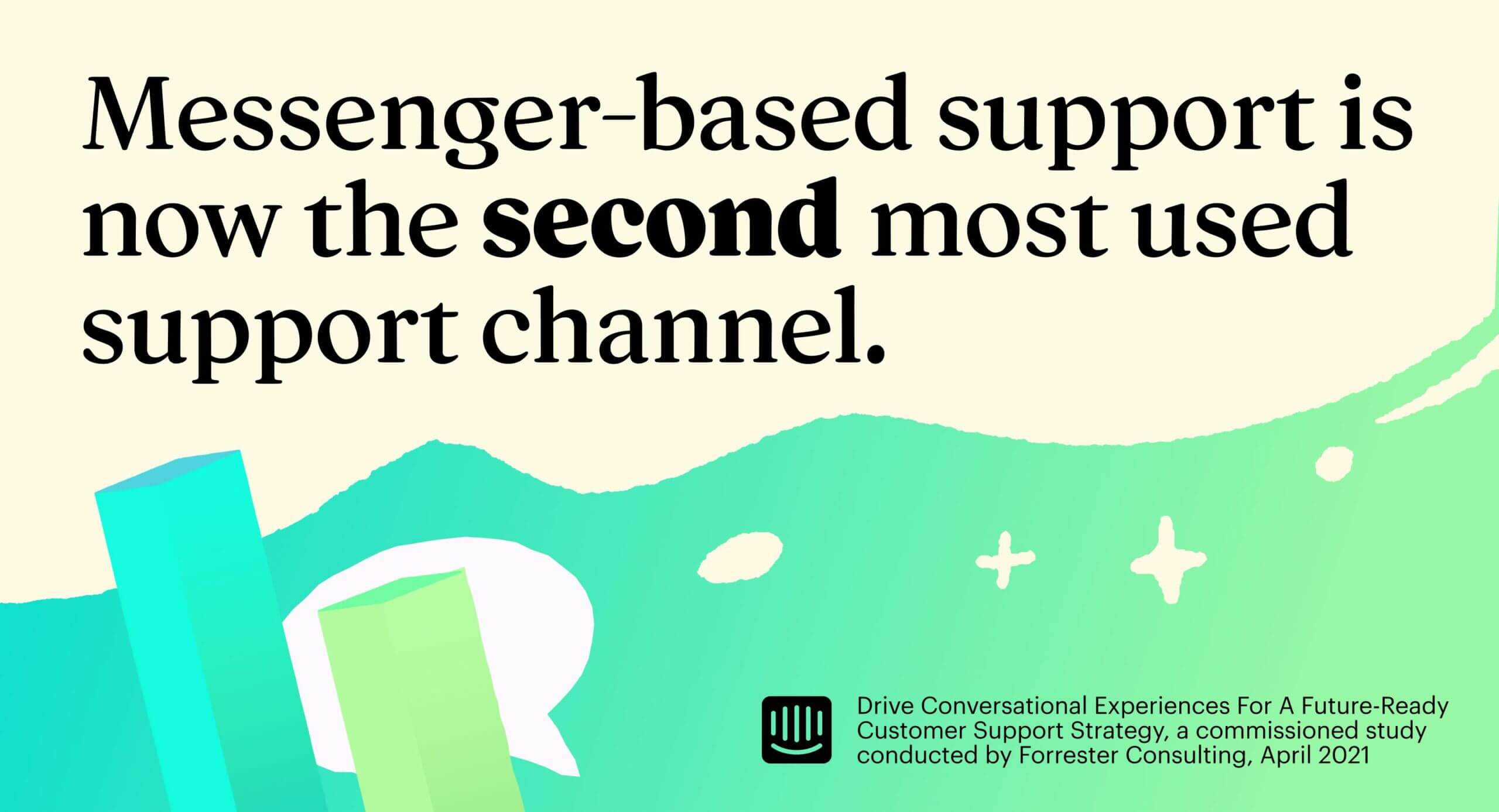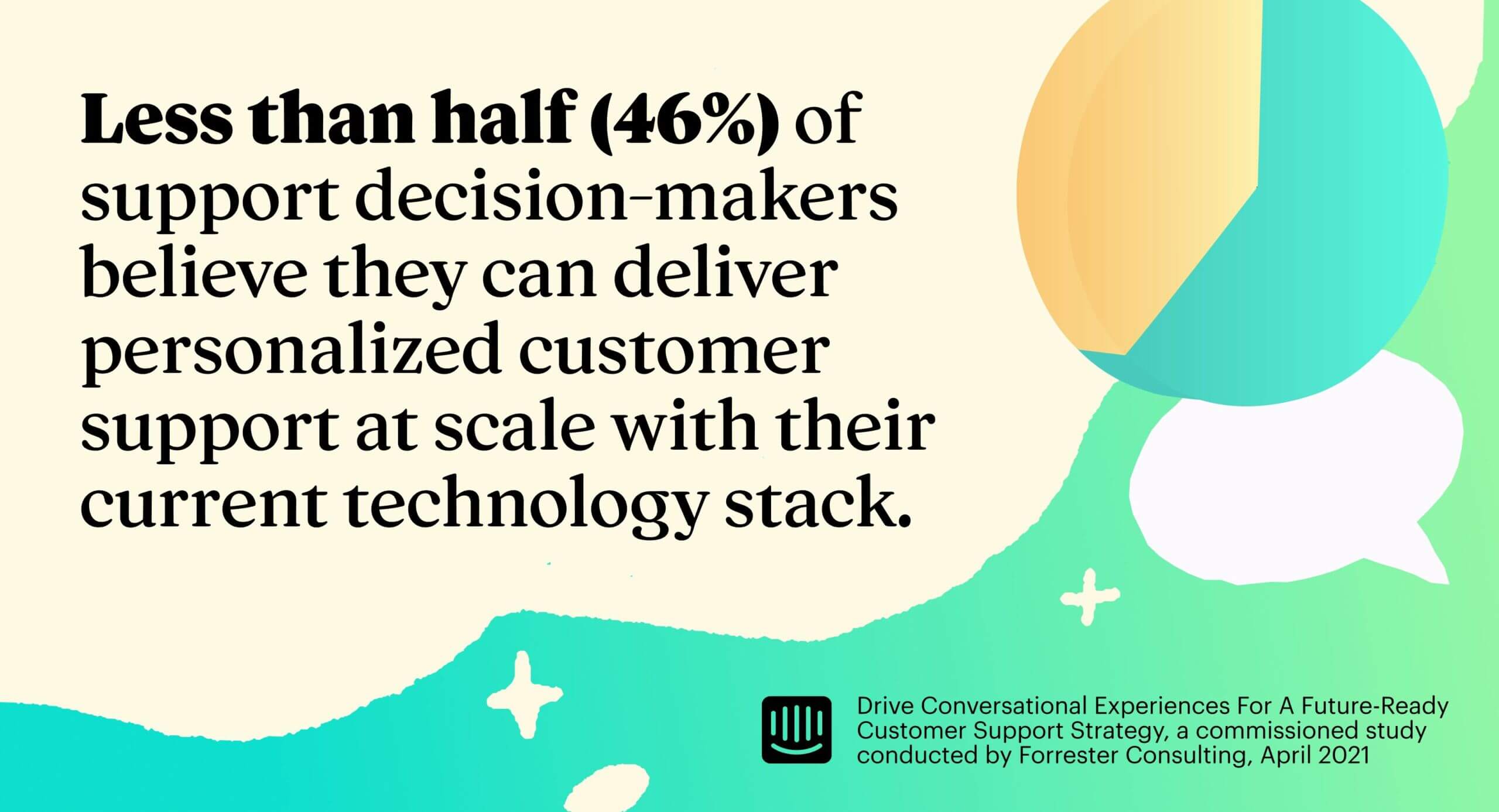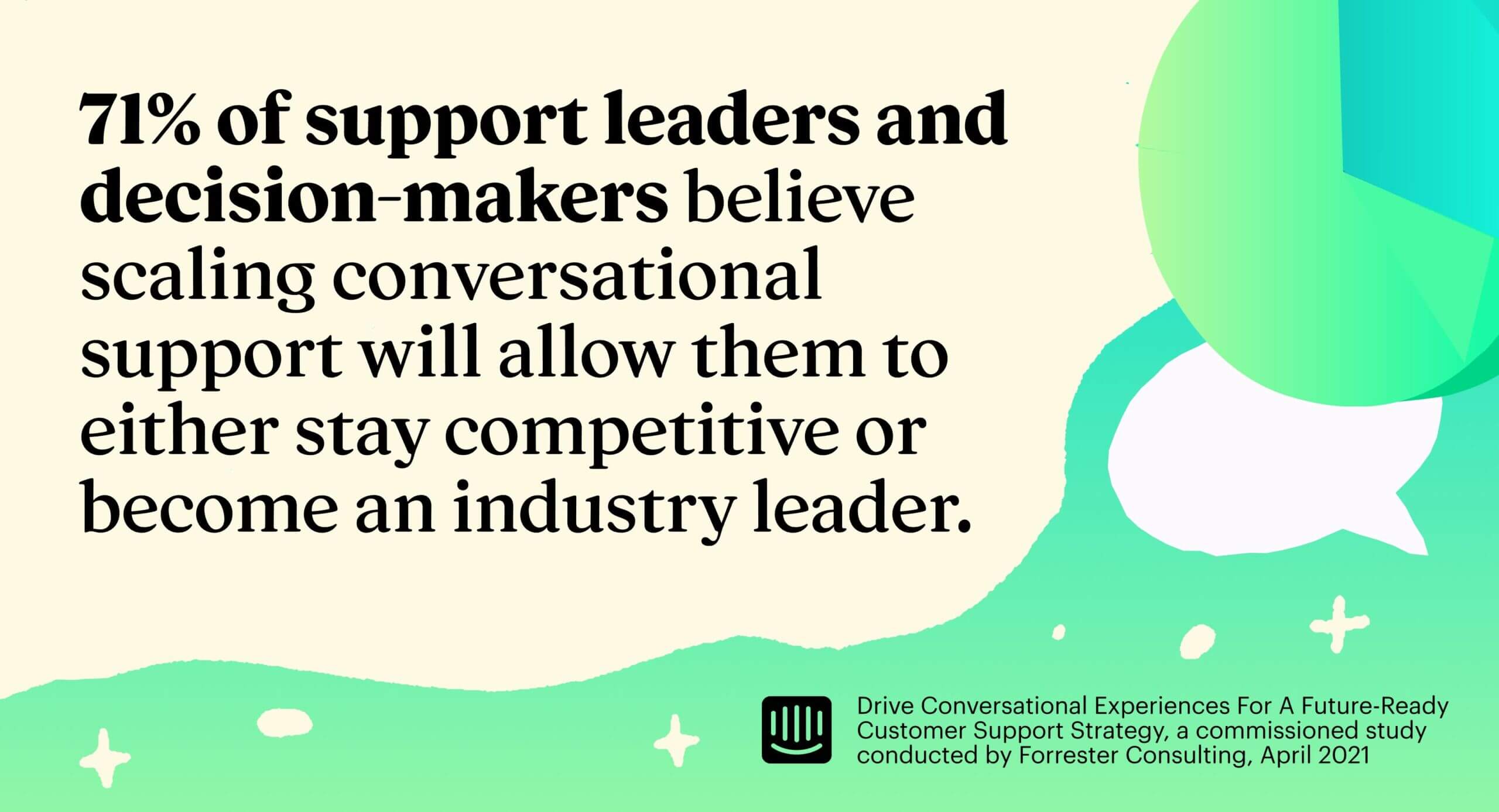
Conversational support is business critical – insights from Forrester research
It’s no secret in tech that everyone is a big fan of their own work.
Self-belief isn’t optional. To start a startup, to take on incumbents, to disrupt an industry – all of this requires believing that you see things changing. Believing that you have something truly new to offer. Believing that customers who try it will see better results. And you need to tell everyone, all the time.
But as you grow and mature, and as your target customers grow from early adopters to more discerning buyers, it’s simply not enough for you to say it. People have grown jaded by claims about “email, reinvented”, “project management, reinvented”, and the like. They want to hear it from a qualified and objective source. Hence they look to industry analysts to explain what’s going on in their area, so they can learn about what’s changing in the industry, and what new tools and technologies have emerged.
At Intercom, we’ve witnessed a lot of change in the past year, and a lot of these changes have advanced ideas that we’ve been speaking about for almost 10 years.
There have been irreversible changes in how the world does business. We’ve seen a dramatic one-way acceleration in the transition to a primarily online business environment. There’s also been a major transformation in the way that companies and customers connect to one another – and as a direct result, providing world-class customer experiences has never been more important.
So we wanted to learn more about these tectonic shifts in the support world so that we could share them with you, our customers, and our readers.
Commissioning Forrester Consulting
Enter Forrester. A commissioned study by Forrester Consulting on behalf of Intercom, Drive Conversational Experiences For A Future-Ready Customer Support Strategy, reveals how conversational experiences are fuelling customer retention and business growth for global companies. They surveyed 523 global customer support decision makers – executives, vice presidents, directors, and managers – across Europe and the United States, to learn more about the changes they’ve seen over the past year, and how they’re future-proofing their customer support strategy with conversational support.
They found that:
- Messenger-based support is now the second most used support channel.
- 58% of respondents believe that customers prefer conversational, messenger-based engagements with brands.
- Nearly 7 in 10 support leaders believe that the strongest customer relationships are built through personalized support experiences.
- Only 43% of support leaders believe they can deliver personalized support experiences with their current tech stack.
- 71% of respondents believe that scaling conversational support will allow them to either stay competitive or become an industry leader.
What does this mean for your organization? There’s never been a better time to invest in conversational support.
Download the full study for more below, or read on for some of our key takeaways.
1. Customers want to use messaging channels for support
Customers’ (and businesses’) preference for messaging channels has significantly grown since the onset of the pandemic. Messenger-based support is now the second most used support channel, overtaking phone and in-person support.

With 53% of respondents seeing an increase in support queries since COVID-19 hit, it’s more important than ever to meet customers where they are – while still giving your support team the resources they need to efficiently handle large conversation volumes. And while phone and email support is difficult and costly to scale, support leaders have found that messaging allows their support teams to provide fast, personalized, efficient support, using a combination of self-serve, proactive, and human support capabilities.
2. Support teams don’t have the technology they need
Even though most customers want personalized, conversational support, only 43% of support leaders believe they have the tech stack to provide it. Inadequate tools are slowing progress – and leading to poor experiences for both agents and customers.

Now more than ever, support teams are struggling with bandwidth and efficiency issues – and their inefficient tech stacks are hindering them, not helping them. The research shows that many support reps are wasting time jumping between tools and apps, getting stuck answering repetitive questions, and unable to provide proactive and self-service support that would empower their customers to resolve their own issues.
3. Conversational support isn’t a nice-to-have – it’s make or break
With all of these challenges in mind, the path forward for support leaders is clear: you need conversational support. Forrester’s research found that conversational support is no longer a “nice-to-have” or something to consider in the future. Customers are expecting it now.
So it’s no surprise that 71% of support leaders believe that scaling conversational support will allow them to stay competitive or become an industry leader.

That’s because the right conversational support tool allows you to deliver fast, efficient, personalized messenger-based support at scale – all while leveraging bots and automation to make workflows more efficient for your team and your customers.
And the results speak for themselves: the reported business benefits of conversational support include improved customer retention, increased business efficiency, enhanced customer satisfaction, and so much more.
Get your copy of the thought leadership paper
Ready to get started? Download your copy of the Forrester thought leadership paper now to learn how industry-leading support teams are using conversational experiences to create a future-ready support strategy.







